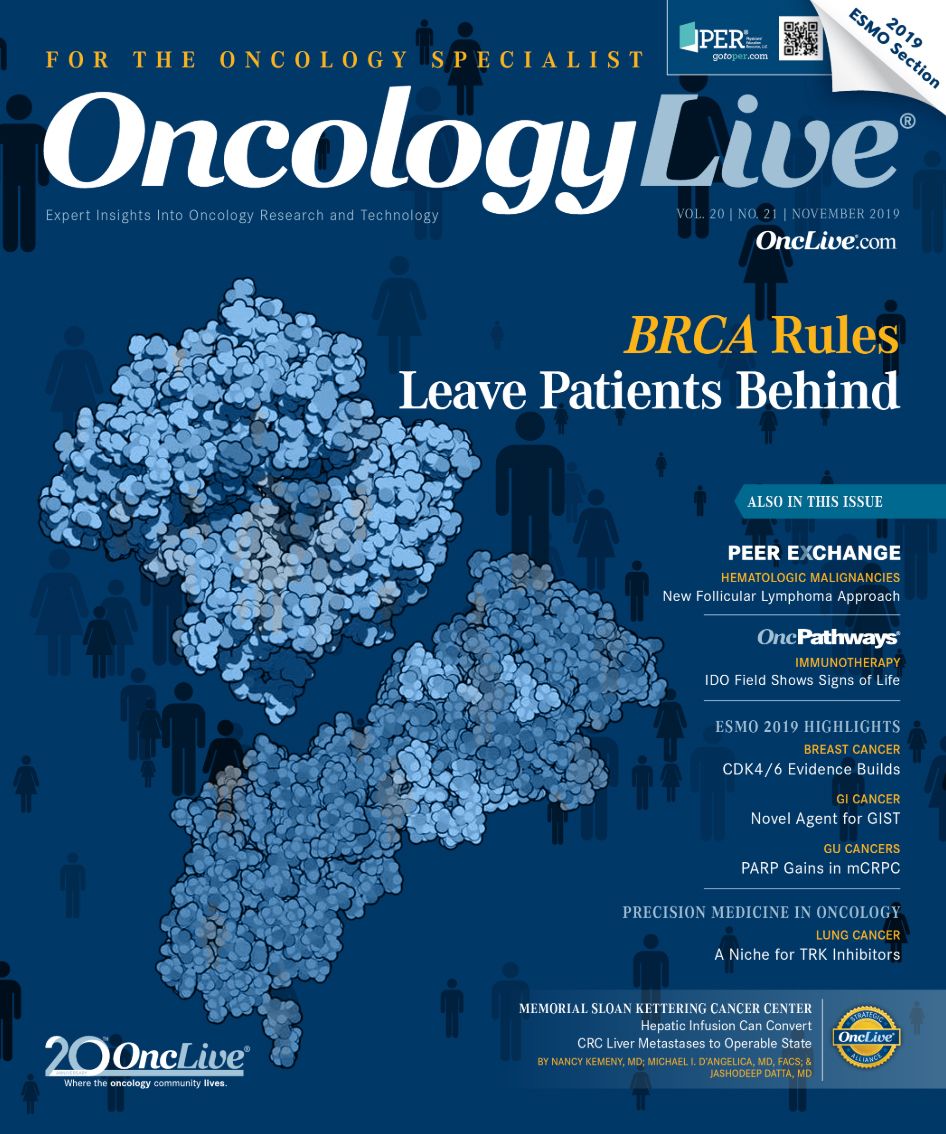Tips for Talking With Patients: "Mother Question" and Sleep Test
Certain themes and questions about individualized, scientifically unanswerable dilemmas often recur when talking with patients and families about treatment.
Maurie Markman, MD, editor in chief, is president of Medicine and Science at Cancer Treatment Centers of America and clinical professor of medicine, Drexel University College of Medicine

Maurie Markman, MD
Not surprisingly, as a longtime practicing oncologist specializing in gynecological cancer, I have noticed that certain themes and questions about individualized, scientifically unanswerable dilemmas often recur when I talk to patients and families about treatment. I have found that unique approaches appear to be helpful at these times.
Perhaps most common is a rather specific question posed by patients or family members regardless of their socioeconomic background, educational or professional attainments, or degree of knowledge of the specific clinical setting being confronted. The query is what I call “the mother question” and is most frequently asked in clinical circumstances that are difficult, complex, or both. This request is likely raised at the end of a consultation when we typically discuss multiple options, such as diagnostic tests, therapies, and clinical trial availability, as well as increasingly large volumes of information from the internet brought to the meeting by the patient or a family member. Some of this information comes from recognizable and respected organizations within the medical/oncology community, but much is from websites that would surely fail to satisfy this description.
The statement is a general variation of the following: “Doctor, I appreciate based on what you have said that you cannot recommend one course of action as the absolute best approach in this specific clinical situation. But I must ask you, what would you recommend if you were advising your own mother?”
It is essentially always the mother and not another family member, likely because of the truly unique and irreplaceable role she plays in everyone’s life. Of course, with experience, I have learned to respond by acknowledging the importance of the question and expressing my genuine belief that my opinion would be the same if I were recommending care for my mother.
A second common issue in consultations has been the dilemma regarding the necessary decision by a patient to either undergo or not undergo a specific intervention or diagnostic testing strategy.
For example, in my practice, a significant issue has been whether a woman with advanced ovarian cancer who just completed her primary treatment of surgery and chemotherapy should continue obtaining routine (often monthly) cancer antigen (CA) 125 blood tests to “monitor the course of the disease.” A well-established diagnostic test, CA 125 plays a rather unique role in active ovarian cancer management; during therapy, serum antigen level can be usefully predictive of the overall degree of disease response, stability, or progression.
Unfortunately, definitive clinical utility of routine monitoring of the serum CA 125 level in women who have achieved a clinically defined complete response, which includes “normalization” of this blood-based biomarker, has not been established. In fact, a somewhat controversial randomized trial that examined this question failed to reveal a population-based improvement in overall survival associated with a once-every-3-months monitoring strategy.1
This study offered no proof of the value of routine measurement of CA 125 in the follow-up of patients with ovarian cancer who obtain a complete response after first-line treatment, nor did it provide evidence that would help a specific woman with ovarian cancer decide whether to continue a routine monitoring strategy—likely to have been regularly employed during her previous treatment program—or discontinue having the blood test and simply wait to see if symptoms or other signs of the illness return.
In discussing this situation with a patient and, commonly, her family, I will describe a scenario that will be referred to as “the sleep test.” The patient is asked whether she will likely have less difficulty sleeping due to anxiety associated with not obtaining the test result and possibly constantly worrying what was happening to her serum value, versus being more concerned with knowing the laboratory value result each time the blood biomarker is obtained. There is surely no single “correct answer” to this question; rather, there is only the psychological and emotional impact on an individual patient resulting from applying the particular diagnostic paradigm. And, of course, the expression “sleep test” is employed solely to focus the attention of the patient on the impact (relatively positive or negative) the decision will have on her well-being.
It is not difficult to think of other clinical settings in which a process similar to this sleep test may have value. Individuals at a defined high risk of developing breast cancer and who may benefit from the administration of a noncytotoxic pharmaceutical agent (tamoxifen, raloxifene, or aromatase inhibitors) will have to decide if the associated adverse events (AEs) justify the potential benefits of treatment. In choosing, the patient must recognize that she may not derive any benefit from the medication.2
Will she sleep better at night knowing she is doing something established in evidence-based clinical trials to be of benefit to a population of women similar to her, or will the potential for low-grade AEs and absence of knowledge of the value of such therapy for her negatively affect her perceived overall quality of life?
It is relevant to note that there has been no intent in this commentary to ignore that certain testing strategies and potential therapeutic interventions considered by individual patients and their families will not necessarily have the highest level of scientific evidence supporting their clinical utility, and there may be valid objections to their use due to cost.3 These concerns are legitimate. It is also important to recognize the major importance of these often complex, very difficult, and highly personal decisions and how they will affect individual patients.
References
- Rustin GJ, van der Burg ME, Griffin CL, et al; MRC OV05; EORTC 55955 investigators. Early versus delayed treatment of relapsed ovarian cancer: a randomised trial. Lancet. 2010;376(9747):1155-1163. doi: 10.1016/S0140-6736(10)61268-8.
- US Preventive Services Task Force, Owens DK, Davidson KW, et al. Medication use to reduce risk of breast cancer: US Preventive Services Task Force recommendation statement. JAMA. 2019;322(9):857-867. doi: 10.1001/jama.2019.11885.
- Ramsey SD, Henry NL, Gralow JR, et al. Tumor marker usage and medical care costs among older early-stage breast cancer survivors. J Clin Oncol. 2015;33(2):149-155. doi: 10.1200/ JCO.2014.55.5409.




